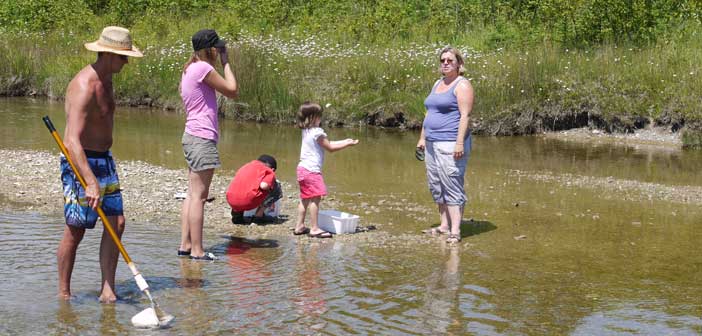ONTARIO—During the annual general meeting of the Elementary Teachers’ Federation of Ontario (ETFO) in Toronto last week, teachers voted on a policy statement to see schools closed on days when buses are cancelled due to inclement weather.
The Expositor spoke with Barb Blasutti, president of the Rainbow Local ETFO, in Toronto last week.
She explained that the vote was on a policy statement that guides future decision-making, but ultimately this would be the decision of the school boards and the Ministry of Education.
“Last year an ETFO member was killed in Peterborough trying to make it to work on a day when the buses were cancelled,” Ms. Blasutti said, noting that she hopes this policy statement, if anything, gets people to take a closer look at the topic through a “safety lens.”
In the Rainbow District School Board, schools are typically not closed when the buses are cancelled, she explained. “Teachers who cannot make it there will either be docked pay or made to take a personal day. I know this is an issue on Manitoulin. I have heard a lot from teachers on the Island,” she added, naming Highways 6, 540, 551 and referencing the whiteouts from Lake Mindemoya on Highway 542 from Providence Bay.
“The current practice is, ‘if you can’t make it, just call,’ but even the cell service on the Island is sporadic,” Ms. Blasutti said. “I’ve had many local discussion on this subject.”
The Expositor asked Manitoulin Trustee Larry Killens for comment too.
“This is not a new question and one that on its surface appears to elicit a ‘no brainer’ response,” he said. “However, that train of thought and expression, ‘no brainer,’ is anything but.”
“That decision, cancellation of transportation on a ‘snow day,’ is made for schools by the busing consortium in consultation with the principals/directors of schools once they gather their information,” Mr. Killens continued. “The busing consortium is charged with a life-altering decision in this instance, one I assure they take very seriously.”
In contrast, he continued, the ‘safety bar’ for travelling vehicle occupants (cars, trucks etc.) of the day (along with travelling teachers) is set by the local police who are the only entity that can, and at times should, close a highway. “No one else has that specific legal authority,” Mr. Killens said. “The ‘bar of safety’ is set by our police for all who are travelling for work or pleasure. This is their responsibility alone in concert with their advisors (Ministry of Transportation, municipal roads departments, patrol officers, etc.). Hence, there is a point where teachers can be prevented from travelling to work, that is by the police along with other users of the same highways and byways. The measure of their safety (teachers) is the same as everyone else’s, unless they are driving a school bus.”
“Teachers are treated like all commuting working people. However, there are a few extra safety practices in place that they (teachers) can employ or pull out of their tool chest of safety measures,” the trustee added. “Some things they can do to increase their margin of safety are as follows: if the distance to their work is lengthy, on a snow day they need only report to the closest school to their home and not their usual place of employment; if it is totally unreasonable for a teacher to head out on our roads and for some strange reason the police have not closed the roads, they can call and report that they are unable to attend due to weather conditions.”
When a snow day is declared, hopefully before a student leaves home, Mr. Killens continued, one must consider the ‘fallout’ from that decision. “One bus may have three or four links with other buses, parents must make alternate arrangements for care of children, schools must ensure there is someone at the school to receive and care for children who arrive, and for whom it could be unknown to them or parents that the school day has been cancelled.”
“Bottom line?” Mr. Killens continued, “teachers have a special place in my world but are treated as well in these circumstances as other travelling/working public and might just have a slight advantage over some other day to day commuters on our highways which can be very dangerous. Teachers I know ask for no more or no less than others would receive in such a situation.”





